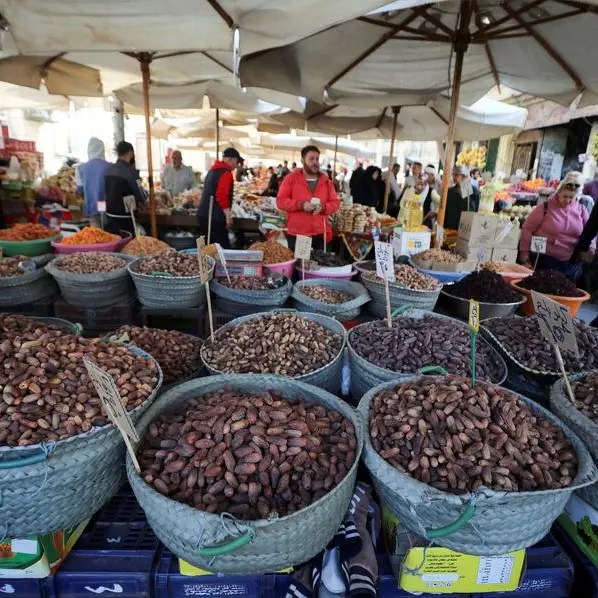PHOTO
Consumers in the UAE are increasingly turning to online shopping, with a 140 per cent increase in monthly e-commerce shoppers since 2020., a recent study showed.
Confidence in digital commerce continues to grow, evidenced by the 49 per cent of UAE consumers planning to increase their online shopping in the coming year. These insights and more were revealed in Checkout.com’s 4th annual Mena e-commerce report released during the Seamless Middle East 2024 exhibition being held in Dubai.
The leading global payments solution provider’s report titled: “The State of Digital Commerce in Mena 2024: A Tale of Rapid, Sustained Growth” highlights the dynamic evolution of the region’s digital commerce landscape, with data showing a remarkable trend towards digital payments and underlining the importance of digital commerce platforms in meeting the evolving needs and preferences of consumers in the UAE.
As the digital economy in Mena grows from strength to strength, the report also provides insight into the way shoppers access goods and services, the preferred platforms for conducting transactions online, and the opportunities for merchants to achieve greater performance from their digital payments. Checkout.com has been tracking the region’s booming ecommerce landscape for the past four years, with the latest report offering a retrospective analysis of 48-month trends and thus capturing the magnitude of change in digital commerce over that time.
The state of the digital economy
This year’s report underscores the resilience and growth potential of the digital economy, revealing that nearly half of UAE consumers (49 per cent) are looking to boost their online spending in the next 12 months. It also highlights a 23 per cent rise in weekly online shoppers, and an additional 10 per cent increase in daily online shoppers among UAE residents. “These figures reflect a profound and enduring shift in consumer shopping habits online and an increased trust in online platforms. The data also reflects the UAE’s accelerated adoption of digital commerce, sustained by a deepening consumer preference for online shopping,” a statement said.
From a regional perspective, the report revealed that the overall volume of digital payments transactions in the Middle East and North Africa (Mena) growing nearly seven-fold (658 per cent) since 2020. “Consumers in Mena have a very optimistic outlook on their future online spending, the report reveals that half of them anticipate an increase in their online spending over the next 12 months,” the statement said.
Remo Giovanni Abbondandolo, General Manager for Mena at Checkout.com, notes: “People and businesses in the UAE are living in a transformative era of digital commerce. This is not only characterized by a remarkable shift in preferences for digital payment methods, but a growing emphasis on payment security, leading to consumer trust. In this respect, the UAE’s embrace of advanced infrastructure, platforms, and policies is clearly yielding impressive results, which are evident in the expansion of digital commerce volumes and the adoption of its payment tools by merchants across all industries.”
Payment security is the key loyalty driver
The report further highlights that the UAE is witnessing a significant transition towards convenient and secure digital payment options. This change is largely driven by consumers’ growing preference for payment security.
From a UAE perspective, consumers show varied online spending habits, with clothing/fashion at 56 per cent, electronics and food/prepared meals both at 53 per cent, and groceries at 46 per cent leading the purchase categories.
The number of respondents ranking payment security as the most important feature offered by an ecommerce business is growing exponentially, with 36 per cent of consumers highlighting payment security as their top concern when shopping online, a sentiment that aligns with the 35 per cent of UAE consumers who have reported being victims of online payment fraud.
The report emphasises the need for optimised payment performance, as 29 per cent of UAE shoppers would switch to a competitor following a single failed payment, a critical consideration for retailers in the country.
“Whilst ease of use is key for payments, security is the foundation for consumers’ trust. Finding the right balance between usability and security is crucial for fostering a healthy relationship between merchants and end users in the world of payments. By prioritizing both ease of use and robust security measures, businesses can instil trust and confidence in their payment systems, retain their customers, and ultimately enhance the overall customer experience, and their overall payment performance,” said Abbondandolo.
The unmistakable demise of cash
The report also marks a significant shift away from cash on delivery (COD) towards digital payment methods. This shift is particularly pronounced in the UAE, where there’s been a 37 per cent decrease in preference for COD over the last 48 months. This significant shift mirrors a broader trust in and acceptance of digital payments, with 74 per cent of UAE consumers indicating they would opt for card payments if COD was not an option. This shift reflects a broader trust in and acceptance of digital payments, aligning with trends observed across the Mena region.
The report also highlights the rapid adoption of digital wallets, such as Apple Pay and Google Pay, which have seen significant growth rates between 2020 and 2023, indicating a shift towards more diverse payment preferences.
“As confidence in digital payment methods grows, it is not a surprise to see a decline in the preference for cash of delivery as a payment method. This presents a unique chance for businesses to keep their costs down. With new technologically advanced payment solutions presenting a more scalable and consumer-friendly experience, the complexity and cost of legacy operations for businesses will continue to decline,” added Abbondandolo.
Diverse spending and payment preferences
A trend evident in this year’s report, is the significant growth in digital commerce across various retail sectors, moving beyond the conventional focus on essential items such as food, groceries, and clothing. This year, there’s been a noticeable increase in consumers purchasing a diverse range of products online, including household items, electronics, furniture, event tickets, travel services, and beauty and luxury products. This highlights that digital commerce, fintechs, wallets, and remittances are becoming an integral part of everyday life, encompassing a wide spectrum of goods and services.
Copyright © 2022 Khaleej Times. All Rights Reserved. Provided by SyndiGate Media Inc. (Syndigate.info).





















